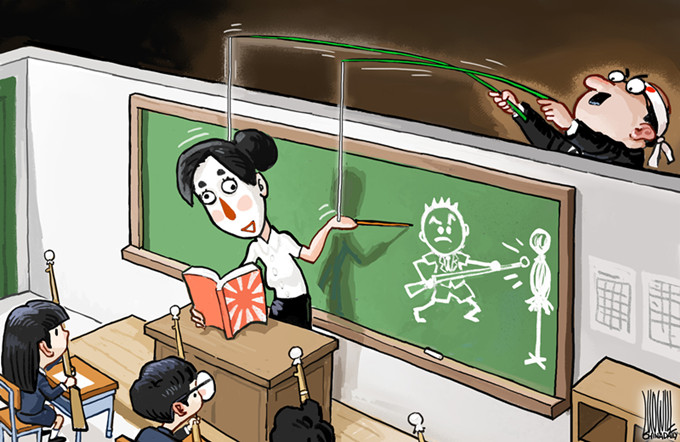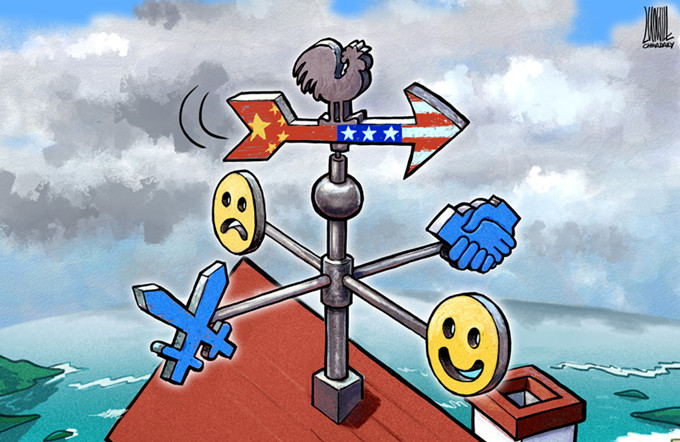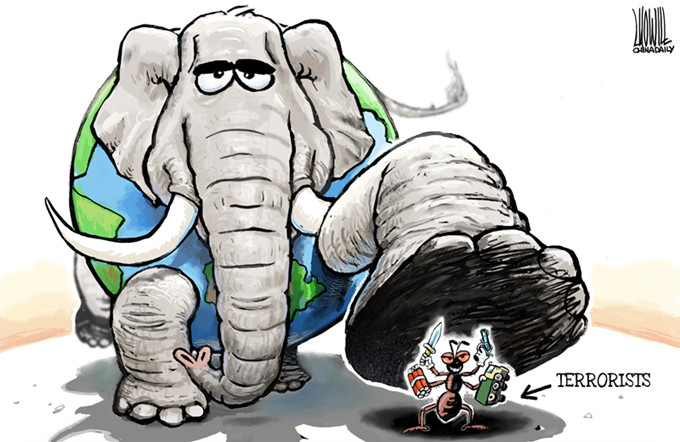Huawei spy story is nothing but a joke
As the accusations and tensions surrounding Huawei and ZTE and their business expansion across the US mount, it is time to cast an objective eye on the situation. But before doing so, it is important to know the context in which this maelstrom of innuendos and finger-pointing has reached boiling point.
Huawei and ZTE both are part of the successful corporate story of China. So impressively spectacular has their, especially Huawei's, growth been that they can now boast that the majority of their sales revenue comes from customers outside China and even the region.
Incidentally, both companies were set up fairly recently with some help from the Chinese government, as has been the case with many of China's better known, large enterprise such as Lenovo.
No discussion can take place without first highlighting the key parts of the US constitution and general business environment. The words "freedom" and "opportunity" are often associated with the US and American culture, and the fourth amendment, through to the eight of the US constitution apparently "guarantees" some sort of "freedom".
US politicians seem to be suggesting that Huawei and ZTE are using their business expansion to "spy" on US companies and even the government. Yet they remain nothing but allegations, for not a single shred of tangible, hard and indisputable, let alone documentary, evidence has been found to support the US politicians' "claims".
The politicians' claims go slightly further, specifically accusing Huawei and ZTE of using their telecommunications equipment to spy on their corporate and personal users. But can they provide evidence beyond doubt by disassembling the equipment bit by bit and isolating the alleged "spy part" for all to see? That they have not been able to do so makes the artificially generated furor nothing but the job of the rumor mills to help the US government take protectionist trade measures against overseas competitors.
The allegations, baseless as they are, expose the hypocrisy of the US government and politicians. They are also an attempt to belittle the tremendous advancement Huawei and ZTE have made in competitiveness in a relatively short period of time. Far from being involved in unethical or illegal practices, these companies have consistently outperformed even their more experienced and far-better-resourced competitors across the world.
But why then has the US accused the two Chinese companies of spying? What could the US gain by doing so? I'm afraid, all bets end here. Companies such as Huawei and ZTE, which have become impressively competitive across the globe, could not possibly pursue louche practices, because they simply do not fit into their scheme of things.
Let us go further, into the realms of pure fantasyland (where many US politicians seem to live happily ever after). What could the Chinese government gain from spying? Absolutely nothing is the only possible answer.
Since China is leading the greatest economic miracle in modern times, it does not need to spy on the US or any other government. Instead, it is the Chinese government that needs to protect the gains made over the past three decades.
The history of Western countries is all about confrontations and conflicts, but China's history is one of non-confrontational and non-expansionary strategy, from the first emperor to more recent times. It is, therefore, contrary to logic for China to confront or even challenge other countries and their governments.
So farcical and fantastic are the US allegations that I suggest Huawei and ZTE use sarcasm a la John McEnroe at Wimbledon 1980: "You cannot be serious!"
The author is a visiting professor at the University of International Business and Economics, Beijing, and a researcher at Nottingham University's School of Contemporary Chinese Studies.



















